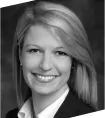- within Strategy topic(s)
This is a brief update on recent Pennsylvania tax developments.
Gubernatorial Race and Tax Reform
As mentioned in our last quarterly update, we do not expect major tax changes this year. But, as the gubernatorial race heats up, tax reform will likely be a hot topic of discussion. Tom Wolf is the Democratic candidate challenging the incumbent Republican Governor Tom Corbett in the election this fall. Wolf is in favor of "combined reporting" for corporate net income tax purposes, as well as a progressive personal income tax. He also supports enacting a severance tax on oil and natural gas extraction. By contrast, Gov. Corbett is not currently pushing any major tax reforms and has routinely opposed a severance tax, while instead supporting the existing "Impact Fee" imposed on unconventional wells.
Board of Finance and Revenue Update
Last year's legislative overhaul of the Board of Finance and Revenue became fully effective April 1. The newly reconstituted Board consists of three members—two are appointed by the Governor (and confirmed by the Senate), and the third is the Treasurer or the Treasurer's designee. The first three-member Board under these new rules has been set.
Treasurer McCord designated Jacqueline Cook to sit as a Board member on his behalf. As the Treasurer's designee, Ms. Cook is the chair of the Board. Her responsibility is to consult with the other members of the Board and select and appoint the counsel, clerks, and other employees of the Board. Previously, Ms. Cook was the Secretary—i.e., the chief staff member—of the pre-April 1 Board.
Gov. Corbett nominated (and the Senate confirmed) David Kraus and Scott Shearer as the other two members of the Board. Most recently, Mr. Kraus served as Chief Counsel to the Department of Revenue; before that, he worked in private practice as a state tax lawyer. Mr. Shearer was also a private-practice state tax lawyer.
Procedures are still being developed for appeals under the jurisdiction of the new Board. Nonetheless, on May 20, the new Board heard its first cases. Lawyers from the Department of Revenue's Office of Chief Counsel represented the Department at the hearings and presented the Department's arguments to the Board. Depending on the tax type at issue in a particular case, the Department was represented by a lawyer from chief counsel's office with that particular subject-matter expertise.
As a reminder, here are several noteworthy changes that went into effect April 1:
- The new Board has statutory authority to "facilitate" settlements.
- The Department of Revenue no longer has a designee sitting on the Board. Instead, the Department is a party to the proceedings and may be represented by counsel in that capacity. As noted above, the Department was in fact represented by counsel at the first hearings before the new Board.
- Taxpayers should receive a copy of anything the Department submits to the Board and will have a chance to comment on the Department's submission.
- Ex parte communications with the Board are no longer allowed.
- All Board decisions will be published (after redacting confidential information) and accessible on the Internet.
Property Tax Reform – How will $13 Billion of Tax Revenue Be Replaced?
As discussed in our update issued last November, major school district property tax reform proposals are circulating in both the House and Senate. However, one bill in particular, Senate Bill 76, is at the forefront of the heated debate on whether, and how, to replace school district property taxes. SB 76 would ultimately replace school district property taxes by increasing the state sales tax rate from 6 percent to 7 percent, broadening the sales tax base, and increasing the personal income tax rate from 3.07 percent to 4.34 percent. Business groups, including the Council on State Taxation (COST), have expressed concern about SB 76 because it would effectively shift much of the tax burden from individuals to businesses.
Under SB 76, all goods and services would be subject to tax unless specifically exempt. This is a major shift from current law under which only specifically enumerated services are taxable; under SB 76, certain health and nursing services would be taxable, and legal and accounting services would also be taxable (unless exempt under the business-to-business exemption).
The Independent Fiscal Office ("IFO") estimates that, in FY15, broadening the sales tax base and increasing the rate under SB 76 would increase revenue by $5.69 billion. The IFO also estimates that increasing the PIT rate would increase FY15 revenue by $4.92 billion. Thus, according to IFO estimates, SB 76 would have an overall negative revenue impact given that school district property taxes generate more than $13 billion of revenue for Pennsylvania annually.
SB 76 is still in the Senate Finance Committee. On April 30, the committee heard testimony on SB 76 and a proposed amendment. We expect debate on this bill—and school district property tax reform generally—to continue throughout this legislative session.
Safe Harbor Limit on Imposition of Local Business Privilege Taxes
On May 6, Governor Corbett approved Act 42, which limits a municipality's authority to impose a local Business Privilege Tax ("BPT"). Under Act 42, a BPT may only be imposed on: taxpayers that have a "base of operations" in that taxing jurisdiction; or taxpayers that conduct business more than 15 calendar days per year in that taxing jurisdiction. In other words, Act 42 creates a safe harbor for taxpayers conducting business 15 days or fewer in a taxing jurisdiction. In the event a taxpayer has a "base of operations" in one jurisdiction and also conducts business in another jurisdiction for more than 15 days, the 15-day jurisdiction takes priority—that is, amounts taxed by the 15-day jurisdiction cannot be taxed by the base-of-operations jurisdiction.
This legislation is in reaction to the Pennsylvania Supreme Court's 2007 decision in Rendina, Inc. v. Harrisburg and the Harrisburg School District,1 where the court permitted a municipality to impose BPT on a taxpayer even though the taxpayer lacked a permanent base of operation within the municipality.
Confusing Notices Being Issued by Department of Revenue
The Department of Revenue's new computer system (instituted as part of the Revenue Modernization Project in 2013) is causing a variety of new notices to be issued, resulting in confusion among taxpayers and practitioners.
It seems that, in deficiency situations, the Department's new system issues unappealable notices prior to issuing a final appealable assessment notice. The system has been issuing adjustment letters, billing notices, and statements of account—all of which lack appeal rights—before issuing an assessment notice. Only an assessment notice triggers normal statutory appeal rights. Not only are these new notices generating a lot of confusion for taxpayers, but they are also causing a strain on the Department because of the increase in petitions and amended return filings in reaction to these notices.
The Department is aware of these issues and is working on providing guidance. Click here for the Department's current draft guidance.
Court Rejects Commonwealth's Attempt to Disregard DOR Regulations
In Muscarella v. Commonwealth,2 the Commonwealth attempted to argue that the Department of Revenue's validly promulgated regulation should be disregarded. The Commonwealth Court rejected this argument. The Commonwealth Documents Law requires that the notice-and-comment process cannot be ignored when the Commonwealth (or one of its agencies) acts in a manner that amends or establishes a regulation.
Muscarella involved a challenge to Department of Revenue's regulations interpreting the property tax rebate available to senior citizens.3 The Department's regulations permit a decedent's estate to claim the rebate if the decedent would have otherwise qualified under the statute, but only if the decedent survived the entirety of the calendar year in which the taxes were paid.4 The taxpayer in this case represented a class of estates that could have claimed the rebate but for the fact that the decedent did not survive the entirety of the calendar year in which the tax was paid.5
The taxpayer argued that the Department's regulations violate state and federal due process and equal protection principles because they treat estates of decedents who survived the entire year more favorably than estates of decedents who did not. The court agreed with the taxpayer and declared the regulations invalid insofar as they limit the ability of an estate to claim a rebate if the decedent did not live for the entire year in which the tax was paid. This meant that any estate could claim the rebate so long as the statutory requirements are met.
The Commonwealth, having lost on the constitutional issues, then turned to arguing that the Department's regulations should be disregarded entirely because the statute is clear on its face that no estates may claim the rebate. Not only did the court disagree with the Commonwealth on this point, but the court also noted that the Commonwealth Documents Law6 precludes the Commonwealth from attempting to amend or void the Department's properly promulgated regulations. The court made it clear that the Department would have to follow formal notice-and-comment procedures to make changes to the regulations.7
Pa. Supreme Court Liberally Construes Deductions from Slot Machine Tax
In Greenwood Gaming & Entertainment, Inc. v. Commonwealth,8 the Pennsylvania Supreme Court issued a taxpayer-friendly decision interpreting the statutory provision at issue as an exclusion (which is interpreted in favor of the taxpayer) rather than as an exemption (which is interpreted in favor of the Commonwealth).
The Greenwood Gaming case involved Pennsylvania's tax on slot machine revenue. Under the statute, the calculation of the tax base—which is called Gross Terminal Revenue ("GTR")—starts with wagers received by a slot machine and then subtracts: amounts paid out to players as a result of playing a slot machine; amounts paid to purchase annuities to fund prizes payable to players as a result of playing; and personal property (other than comps such as travel expenses, food, refreshments, lodging, or services) distributed to players as a result of playing.9
Greenwood Gaming, which operates Parx Casino, argued that it should be entitled to deduct from GTR the cost of vehicles, concert tickets, sporting event tickets, and gift cards given to patrons with slot-player cards. The Commonwealth argued that the statute requires a direct, traceable connection between slot play and the personal property that the casino gave to the player. According to the Commonwealth, only payouts reflected in the Department of Revenue's central control computer system ("CCCS")—which tracks GTR—are permitted to be deducted. And the only amounts reflected in the CCCS are those that are directly traceable to a particular instance of slot play. The Commonwealth Court ruled in favor of the Commonwealth, holding that the only payments that are deductible are those made "as a direct and immediate result of physically operating a slot machine."10
The Supreme Court reversed. As noted above, the court concluded that the definition of GTR created exclusions, which are interpreted in favor of the taxpayer. As a result, the court interpreted the phrase "as the result of playing a slot machine" to mean that payments can still be deductible even if "tied more generally to slot machine play at the gaming facility" rather than being "tied to specific machines."
As a result of this decision, a casino can now take a deduction from the tax base for the cost of promotional giveaways to slot players. The combined state and local tax rate imposed on GTR is 55 percent, so without this deduction, many giveaways were impractical.
The case was remanded to Commonwealth Court to make a factual determination of whether the promotional items given away by Parx were tied to slot play at all.
Footnotes
1 595 Pa. 407 (2007).
2 10 F.R. 2011 (Pa. Commw. Ct. 2014).
3 This is called the Senior Citizens Property Tax and Rent Rebate Assistance Act. 53 P.S. §§ 6926.1301–6926.1313.
4 61 Pa. Code §§ 401.1(iv), 401.43(a).
5 The petitioner was permitted to bring a class action suit because the petitioner was seeking a rebate, rather than a refund, of taxes. Muscarella v. Commonwealth, 39 A.3d 459 (Pa. Commw. Ct. 2012).
6 45 P.S. § 1102 et seq.
7 This case is still pending in Commonwealth Court on the issue of remedy. After the Commonwealth Court issued its decision, the petitioner propounded additional discovery on the Commonwealth. According to a status report filed with the court May 16, the Commonwealth is conferring with the Department of Revenue regarding how to proceed.
8 No. 50 MAP 2012, 2014 WL 1669794 (Pa. April 28, 2014).
9 4 Pa. C.S. § 1103 ("Gross Terminal Revenue").
10 Greenwood Gaming and Entertainment, Inc. v. Commonwealth, 29 A.3d 1215, 1220 (Pa. Commw. Ct. 2011), overruled by 2014 WL 1669794 (Pa. April 28, 2014).
This article is presented for informational purposes only and is not intended to constitute legal advice.



